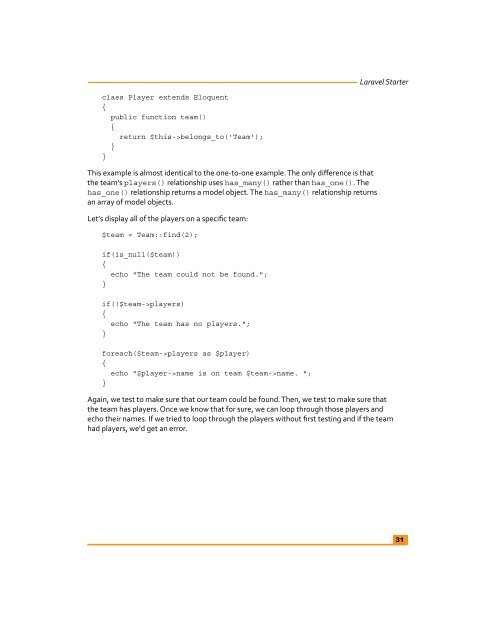Laravel Starter - PHP User Group (Myanmar)
Laravel Starter - PHP User Group (Myanmar)
Laravel Starter - PHP User Group (Myanmar)
You also want an ePaper? Increase the reach of your titles
YUMPU automatically turns print PDFs into web optimized ePapers that Google loves.
<strong>Laravel</strong> <strong>Starter</strong><br />
class Player extends Eloquent<br />
{<br />
public function team()<br />
{<br />
return $this->belongs_to('Team');<br />
}<br />
}<br />
This example is almost identical to the one-to-one example. The only difference is that<br />
the team's players() relationship uses has_many() rather than has_one(). The<br />
has_one() relationship returns a model object. The has_many() relationship returns<br />
an array of model objects.<br />
Let's display all of the players on a specific team:<br />
$team = Team::find(2);<br />
if(is_null($team))<br />
{<br />
echo "The team could not be found.";<br />
}<br />
if(!$team->players)<br />
{<br />
echo "The team has no players.";<br />
}<br />
foreach($team->players as $player)<br />
{<br />
echo "$player->name is on team $team->name. ";<br />
}<br />
Again, we test to make sure that our team could be found. Then, we test to make sure that<br />
the team has players. Once we know that for sure, we can loop through those players and<br />
echo their names. If we tried to loop through the players without first testing and if the team<br />
had players, we'd get an error.<br />
31




